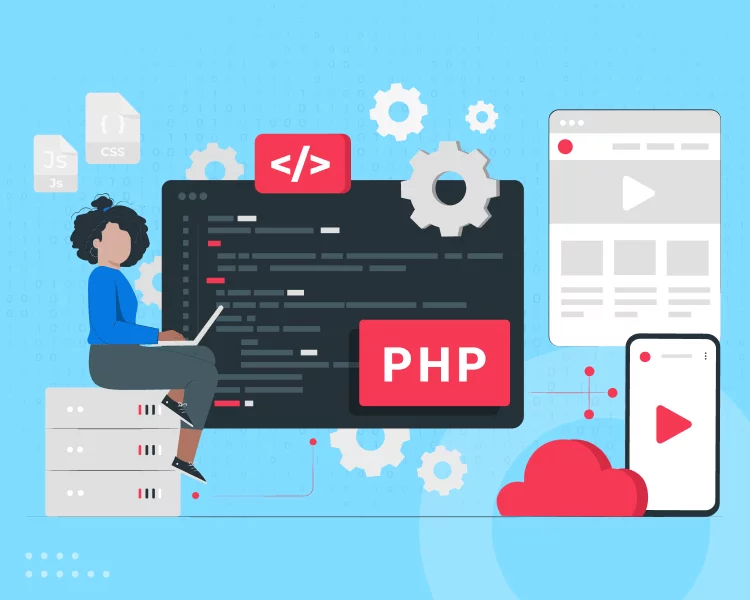Tube Rank: Your Guide to Video Success
Discover tips and insights for optimizing your video presence.
PHP Development: Where Syntax Meets Sass
Unlock the magic of PHP development! Discover how syntax and sass create dynamic web experiences. Join the coding revolution today!
Understanding PHP Syntax: The Building Blocks of Web Development
PHP, which stands for Hypertext Preprocessor, is a server-side scripting language that is an essential building block of modern web development. Understanding PHP syntax is crucial for developers, as it establishes the foundation for writing dynamic web applications. The basic structure of a PHP script begins with the opening tag <?php and ends with the closing tag ?>. Inside these tags, developers can write various programming constructs, including variables, operators, control structures, and functions. Familiarity with these constructs enables programmers to create responsive, interactive, and user-friendly websites.
In order to master PHP syntax, it is vital to grasp its key elements. These include:
- Variables: Prefixed with a dollar sign (
$), variables are used to store data. - Operators: PHP supports a range of operators for string manipulation, arithmetic, and comparison.
- Control Structures:
if,else,switch, and looping constructs likeforandforeachhelp dictate the flow of execution based on conditions. - Functions: Functions are reusable blocks of code that help make scripts more organized and manageable.
This foundational knowledge sets the stage for more advanced topics in PHP development.

How to Incorporate Sass with PHP: A Comprehensive Guide
Incorporating Sass with PHP can greatly enhance your web development workflow by allowing you to write more efficient and maintainable code. To get started, you'll need to install a Sass compiler. This can be done using tools like Node.js and NPM, or by utilizing a PHP preprocessor such as scssphp. Once you have your compiler set up, you can create your Sass files with the .scss extension and start writing your styles using Sass features, such as variables, nested rules, and mixins. These features will not only save you time but also make your CSS easier to manage.
After you've written your Sass code, you need to compile it into standard CSS that your PHP application can use. You can automate this process by including a simple build script in your workflow. For example, use npm scripts or task runners like Gulp or Grunt to watch your Sass files and compile them whenever there are changes. Once compiled, link the generated CSS file in your PHP frontend using the <link> tag. This integration not only optimizes your development process but also enhances the maintainability of your styles across different parts of your web application for a seamless user experience.
PHP Development Best Practices: Tips for Writing Clean and Efficient Code
When it comes to PHP development, adhering to best practices is crucial for writing clean and efficient code. One of the foundational aspects of PHP development is maintaining a consistent coding style. This can be achieved by following a standards guide, such as PSR (PHP Standards Recommendations). Additionally, make sure to comment your code effectively; well-placed comments can save time for both yourself and your teammates in future development. Utilizing version control systems, like Git, is also highly recommended to manage code changes and collaborate more efficiently.
Another important practice is to make use of object-oriented programming (OOP) principles whenever possible. OOP promotes code reusability and modularity, which can lead to more maintainable applications. Additionally, always validate your inputs and sanitize your outputs to enhance security. Consider implementing error handling mechanisms to manage exceptions and provide meaningful error messages that can aid in debugging. By following these tips, you can elevate your PHP projects to new heights of efficiency and reliability.